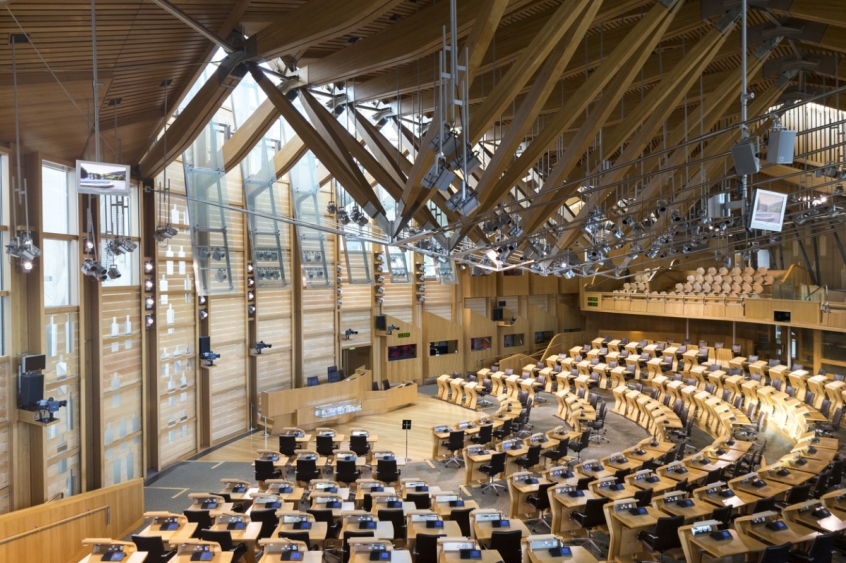
Scottish government plans to allow people as young as 16 to choose their own gender are a step closer to becoming reality after they were approved by Holyrood's equalities committee.
The general principles of the Gender Recognition Reform (Scotland) Bill were backed by the Equalities, Human Rights and Civil Justice Committee by a majority of five to two.
The Bill aims to simplify the process by which people can change their legal gender by removing the requirement of a medical diagnosis of gender dysphoria and reducing the waiting period from two years to three months.
It would also lower the current age at which people can apply for a gender recognition certificate from 18 to 16.
The Scottish government claims that the process set out in the Bill is a "balanced and proportionate way of improving the current process for trans men and women seeking to obtain legal gender recognition".
If the Bill is passed, the Scottish government estimates a rise in the number of people seeking to change their legal gender from around 30 a year currently, to between 250 and 300 a year.
The proposals have been rubber-stamped by the committee despite a 'call for views' by the committee earlier this year registering strong opposition.
Of the 10,800 submissions received, over half (59%) disagreed with the overall purpose of the Bill compared to only 39% who agreed.
Submissions raised concerns about the threat to the rights and safety of women and girls, single sex spaces, and lowering the age limit to 16. Others cited the Cass Review which led to the closure of the NHS's Tavistock gender clinic for young people.
The Evangelical Alliance was among the hundreds of organisations that made written submissions. It raised concerns about the removal of medical evidence, and argued that the current system was "sufficient" and struck "the right balance" between the rights of trans people and other groups.
In oral evidence, Chris Ringland, public policy officer of the Evangelical Alliance Scotland, argued that it was especially important to retain the two year waiting period if the age limit is reduced to 16.
Despite the level of concern, the committee insisted that the Bill "will not change any of the protections or definitions set out in the Equality Act 2010, including the ability to exclude trans people from single-sex services where proportionate and appropriate".
The committee said: "The majority is satisfied that the bill will not change or remove women's rights, make changes to how toilets and changing rooms operate, redefine what a man or a woman is, nor change or expand trans people's rights."
On changes to the age limit, the committee concluded that "it is clear that most young people reach decisions about their gender identity long before they consider applying for a GRC".
Simon Calvert, a spokesman for The Christian Institute, said the plans were "mad".
"The Committee admits to ignoring the 59% of submissions to the short survey which disagree with the purpose of the Bill," he said.
"They also clearly plan to ignore the Cass Review which is, frankly, criminal given the damage being done to young people in the name of gender ideology.
"The recent British Social Attitudes survey shows a collapse in public support for allowing transgender people to change their birth certificates, even under the existing law. Only 32% support it.
"Yet the Scottish Government – now backed by this Committee - is proposing to allow sixteen year-old children to change their birth certificates, after just three months, with no requirement for any medical diagnosis, leaving the door wide open to false declarations. It's a madcap plan by any measure.
"This week the Equality And Human Rights Commission wrote to the Scottish Government highlighting the impossible position Scotland would be in by going it alone with these plans."
"The Scottish Government's Bill would allow for trans tourism, where non-Scots could live in Scotland for three months and get a new birth certificate. A university student could apply after just one term. It also applies to Scots living elsewhere. So a 16-year-old Scot living in Doncaster could get a birth certificate saying he was born a girl and try to use it to force his English school to allow him to use the girls' facilities."













